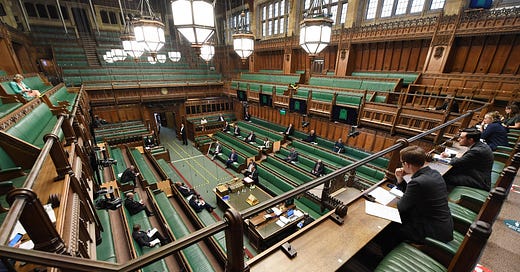MPs have given themselves the power stop ministers implementing legislation that breaks international law. Does that make everything all right now? Can we expect the government’s most senior legal advisers to rescind their resignations?
In answering those questions, our starting point must be clauses 42, 43 and 45 of the United Kingdom Internal Market Bi…
Keep reading with a 7-day free trial
Subscribe to A Lawyer Writes to keep reading this post and get 7 days of free access to the full post archives.



